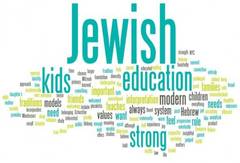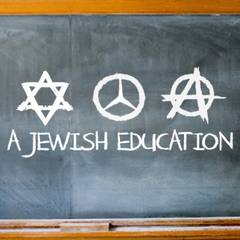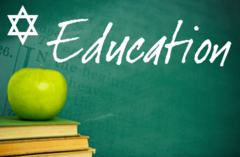Preparing Our Hearts for the High Holy Days 5777
09/05/2016 09:35:56 PM
Sep5
| Author | |
| Date Added | |
| Automatically create summary | |
| Summary |
 Monday, September 5th, 2016
Monday, September 5th, 2016
We are approaching Rosh Hashanah and Yom Kippur; holidays which attract more Jews to services than any other time of the year. As a Rabbi, in full High Holy Day preparation mode, I take responsibility to create a vibrant and relevant Jewish, religious and spiritual experience. I do this by weaving together, the traditional melodies and ritual along with stories and insights. My objective is to illuminate, challenge and educate. I hope to get those in my community engaged in self-examination around the important issues in their lives. By doing this, I believe we begin to feel more deeply and with more understanding.
Each year that I have the privilege to lead a Jewish community through the High Holy Day experience, I do all that I can to create an environment that encourages individuals to think about their lives and the direction they are headed. Through brief anecdotes and explanations participants are able to connect to the ancient
words and the music, even if they do not understand a word of Hebrew.
Our tradition says: “Know before whom you stand”. As I anticipate being before my
community, I know it will be comprised of intelligent, interesting, thoughtful and caring people. Some will attend because they feel it will facilitate their effort to make a deeper connection to their spirituality during the sacred days; others will do so out of obligation to their families; while others do so out of guilt for not having
practiced Judaism what they consider “actively enough” during the year. Regardless what the motivation, those who join the Beiteinu community for Rosh Hashanah and Yom Kippur (as well as Shabbat worship during the year) will feel challenged, engaged, and energized to face the new year.
Throughout the country large numbers of American Jewish people report they feel like spectators, who simply sit in the sanctuary while the clergy go through the choreography. Many congregants admit to cutting corners on the holiest days of the year: some arrive late on Rosh Hashanah morning because they don’t feel the need
to be there at the start. Some leave after the sermon because they’re ready for lunch. Some attend for an abbreviated time on Yom Kippur because they already sacrificed
two hours for Kol Nidre.
What if this year, each of us vowed to arrive at the beginning and stay through the service? What if we made our experience deliberately more demanding? What if we plan to work just a little bit harder to find meaning in the liturgy- in whatever means we avail ourselves to? Some may choose to prepare in advance by reading about a favorite prayer (for example Avinu Malkeynu). Others may be prepared with something to pray about during the Amidah. Perhaps you just prepare by contemplating in advance about what things you will ask for forgiveness, who you will forgive and what you will do differently this year. These methods may just allow you to consciously be prepared to be turned on to the meaningfulness Judaism has offer. I believe that, if I do everything I can to engage my congregation and those with me view themselves as active participants rather than passive guests, these Holidays will be a high for all of us.
What do you think?
I hope to experience the holidays with you.
Rabbi Cove
Thu, 30 October 2025
Upcoming Events
All Events
-
Tuesday ,
OctOctober 7 , 2025Lafayette Hill Classes- 7-9 yrs old
Tuesday, Oct 7th 4:30p to Wednesday, May 20th 5:30p
Rabbi Cove and Beiteinu will be returning to Lafayette Hill- virtually. We will be participating in an educational experience for Children 7-9 years old. Rabbi Cove will share his love of Judaism through interactive education and the celebration of various holidays. -
Tuesday ,
OctOctober 7 , 2025Lafayette Hill Classes- 10-12 yrs old
Tuesday, Oct 7th 6:00p to Wednesday, May 20th 7:00p
Rabbi Cove and Beiteinu will be returning to Lafayette Hill- virtually. We will be participating in an educational experience for Children 10-12 years old. Rabbi Cove will share his love of Judaism through interactive education and the celebration of various holidays. -
Wednesday ,
OctOctober 8 , 2025Blue Bell Classes
Wednesday, Oct 8th 4:00p to Wednesday, May 13th 5:00p
Rabbi Cove and Beiteinu will be coming to Blue Bell- virtually and in person. We will be participating in an educational experience for Children. Rabbi Cove will share his love of Judaism through interactive education and the celebration of various holidays. -
Wednesday ,
OctOctober 8 , 2025Dresher Classes
Wednesday, Oct 8th 5:30p to Wednesday, May 13th 6:30p
Rabbi Cove and Beiteinu will be back in Dresher virtually. We will be participating in an educational experience for Children. Rabbi Cove will share his love of Judaism through interactive education and the celebration of various holidays. -
Friday ,
OctOctober 24 , 2025Beiteinu Virtual Shabbat
Friday, Oct 24th 7:30p to Friday, Jun 26th 8:30p
Join Rabbi Cove for a moving and inspirational shabbat service in the safety of your home. Go to our website https://www.facebook.com/synagoguewithoutwalls/ and scroll to the videos. Click the "LIVE" video -
Friday ,
NovNovember 21 , 2025Beiteinu Shabbat Live in Person
Friday, Nov 21st 7:30p to 9:00p
Join Rabbi Cove and Beiteinu as he welcomes in the Shabbat. Enjoy lively discussions, prayer and friendship -
Friday ,
MarMarch 13 , 2026Beiteinu Shabbat Live in Person
Friday, Mar 13th 3:30p to 4:30p
Join Rabbi Cove and Beiteinu as he welcomes in the Shabbat. Enjoy lively discussions, prayer and friendship -
Friday ,
AprApril 24 , 2026Beiteinu Shabbat Live in Person
Friday, Apr 24th 7:30p to 9:00p
Join Rabbi Cove and Beiteinu as he welcomes in the Shabbat. Enjoy lively discussions, prayer and friendship -
Friday ,
MayMay 15 , 2026Beiteinu Shabbat Live in Person
Friday, May 15th 7:30p to 9:00p
Join Rabbi Cove and Beiteinu as he welcomes in the Shabbat. Enjoy lively discussions, prayer and friendship
Join Our Mailing List
Thu, 30 October 2025

